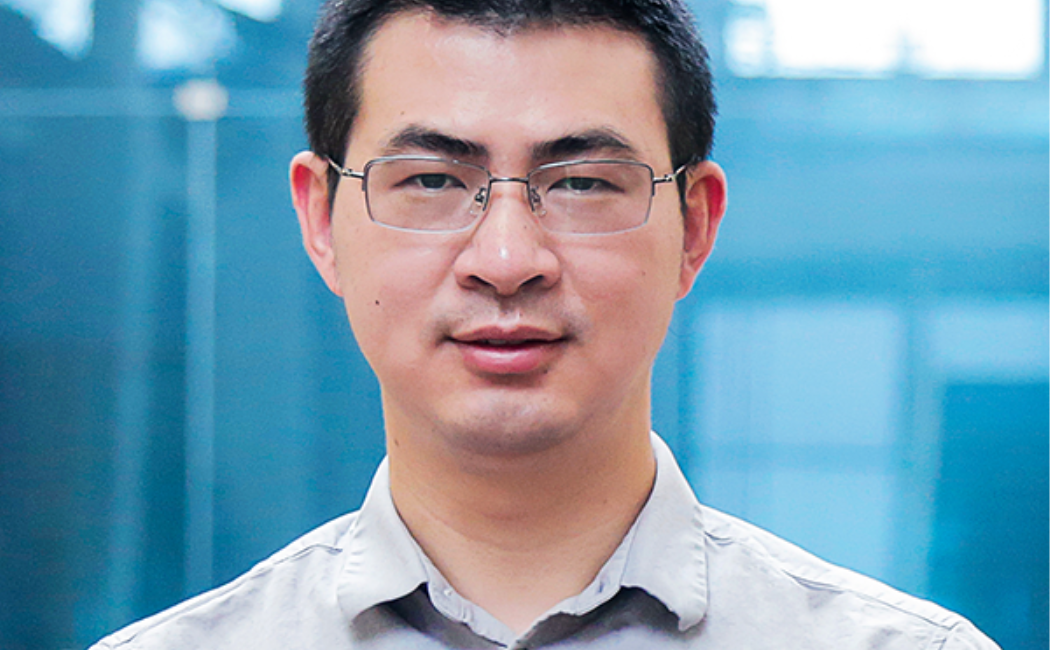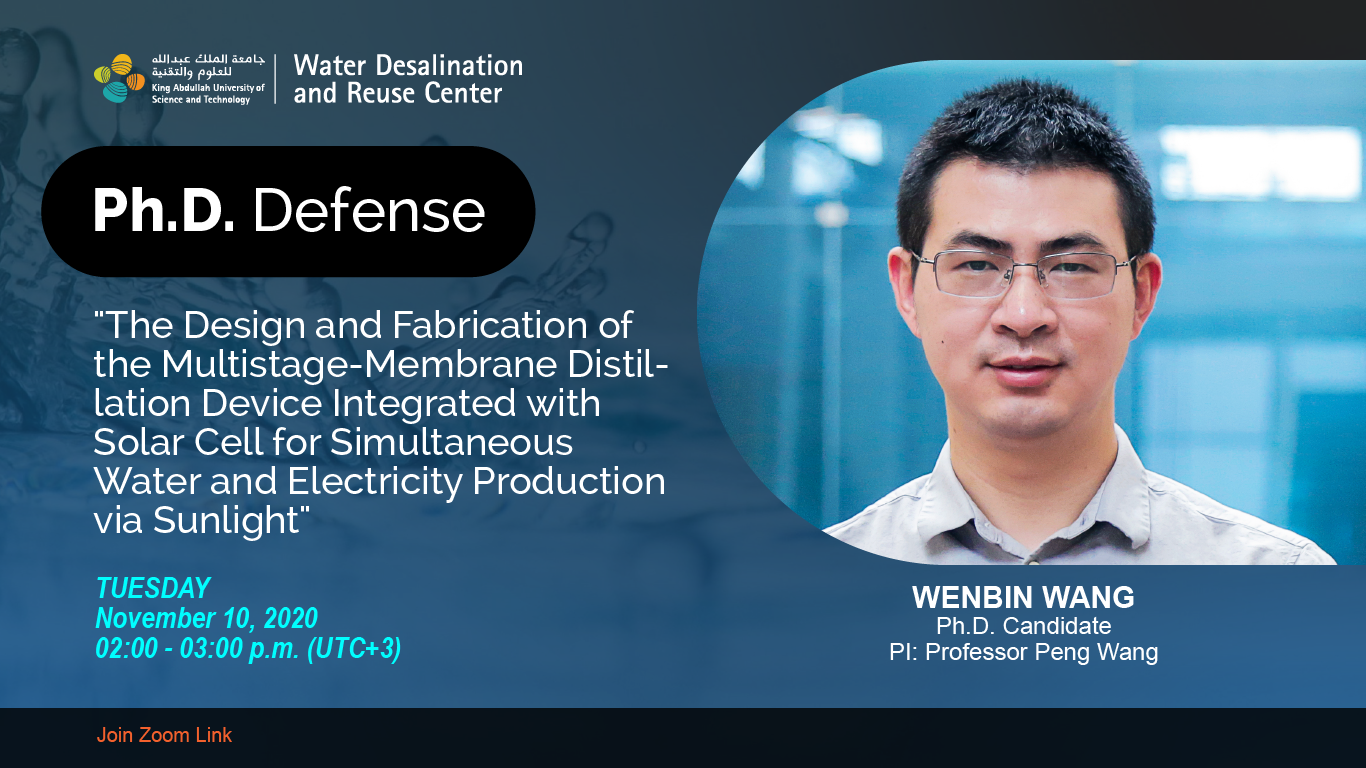



Join Zoom link: https://kaust.zoom.us/j/94229962981
Freshwater scarcity and clean energy shortage are two grand challenges to global sustainable development. The inextricably interconnected water-energy nexus is being increasingly felt globally owing to the large amounts of water used for electricity generation and the significant amount of energy consumed in water desalination. This dissertation investigated the utilization of the waste heat of the solar cell to produce fresh water. This is achieved by constructing a multistage membrane distillation device (MSMD) at the backside of the solar cell to efficiently utilize the heat of solar cell and it is capable of recycling the latent heat of the vapor condensation in each distillation stage. The first generation PV-MD device shows a clean water production rate of 1.64 kg/m2 h with the solar cell temperature of 58 oC in a 3-stage device under one-sun radiation. A thermal model was further established for optimization. The results indicate that a thinner hydrophobic membrane with a higher porosity can achieve a higher clean water production rate at lower PV temperature. Therefore, a hydrophobic membrane with a thickness of 0.1 mm and a porosity of 0.86 was employed to fabricate a 5-stage device. Furthermore, an evaporative crystallizer (EC) was designed beneath the MSMD to further recycle the latent heat of the bottom stage to evaporate the concentrated seawater produced from MSMD, realizing zero liquid discharge. The 5-stage PV-MD-EC device shows a clean water production rate of 2.45 kg/m2 h for seawater desalination under one sun. Compared to the solar cell without the backside MSMD, the solar cell with MSMD shows a declined temperature, from ~ 62 oC to ~48 oC. The lower solar cell temperature results in an enhanced electricity generation efficiency by ~8.5%. A trade-off exists between the clean water production performance and material cost of the MSMD because higher energy efficiency is at the cost of more stages applied. A low-cost paper-based MSMD (P-MSMD) was further designed and fabricated, which, due to its flexibility, can be used as a response to natural disasters like earthquakes. An 8-stage P-MSMD device shows a clean water production rate of 3.61 kg/m2 h for seawater desalination. This work sheds light on the design and fabrication of a composite system capable of achieving the simultaneous production of electricity and clean water with solar energy as an only energy source. Owing to their low barrier of entry, the devices reported in this dissertation are well suited to provide off-grid electricity and fresh water in a decentralized manner for point of consumption locations especially off-grid communities and communities with small- to medium-sized population even with challenging economic conditions.
Wenbin Wang started his Ph.D. in environmental science and engineering at KAUST in June 2018 under the supervision of Professor Peng Wang. He received his master's degree in chemical engineering from Northwestern Polytechnical University. His research interests are mainly focused on the utilization of solar energy for desalination and electricity generation.